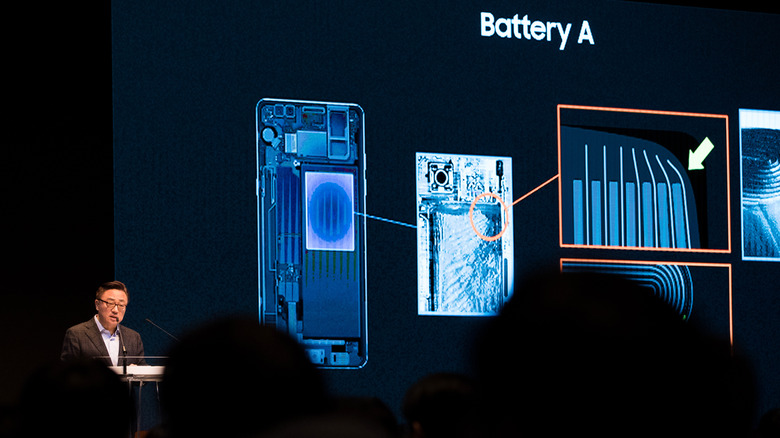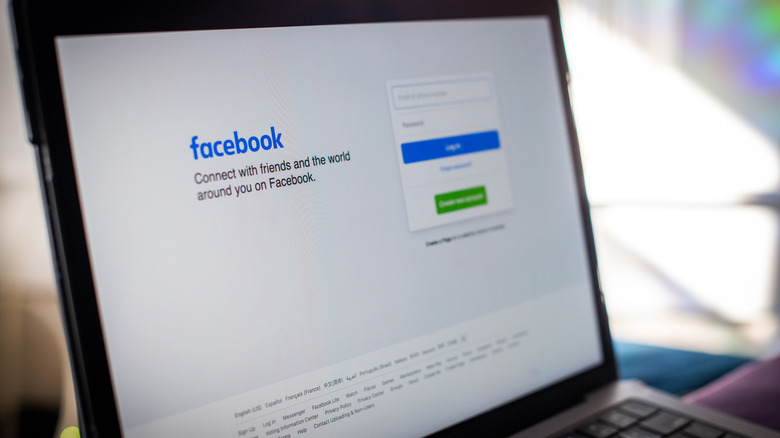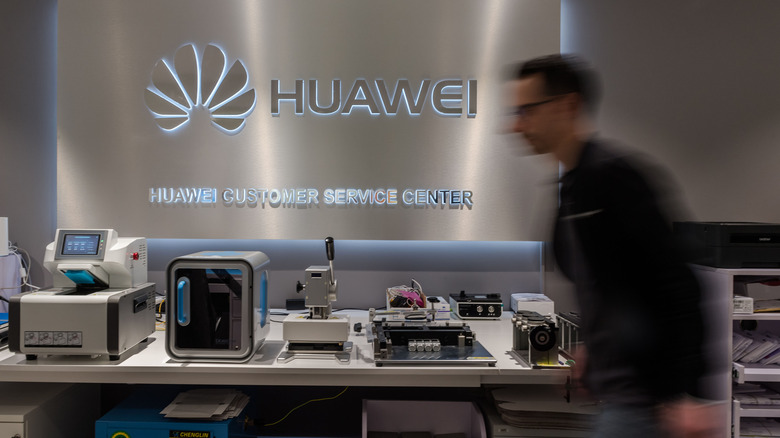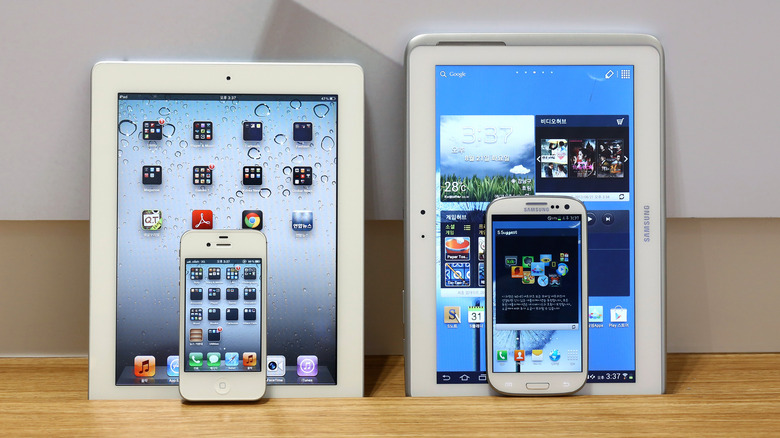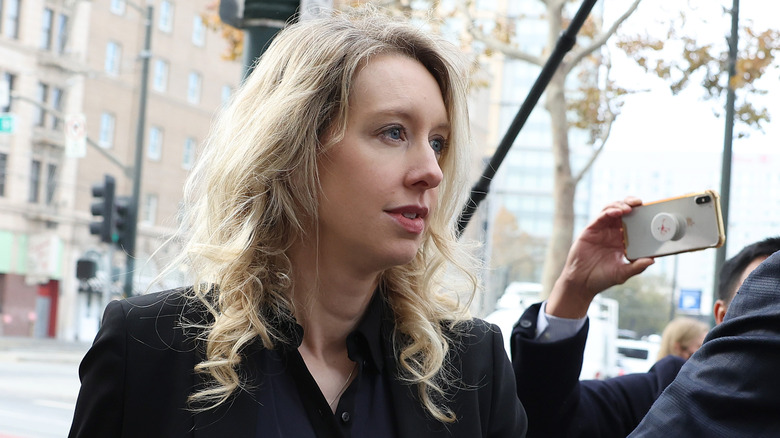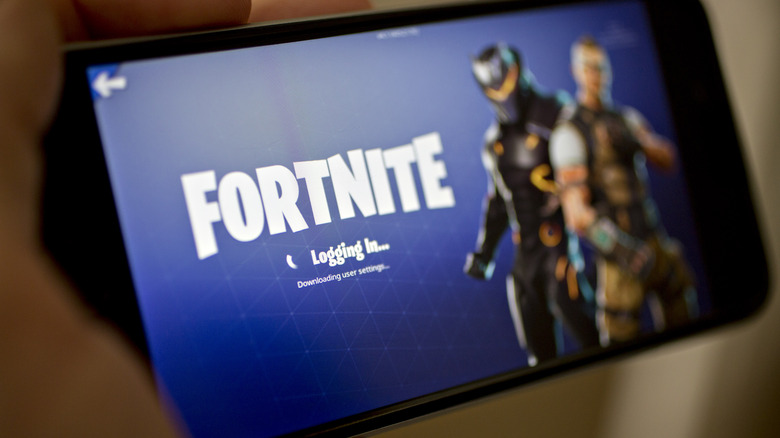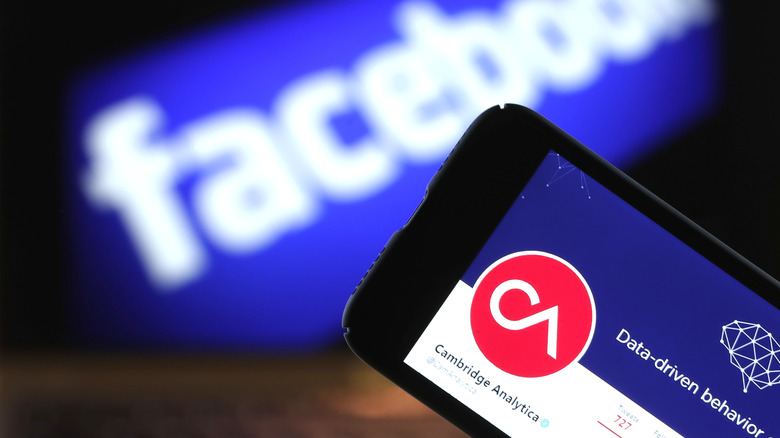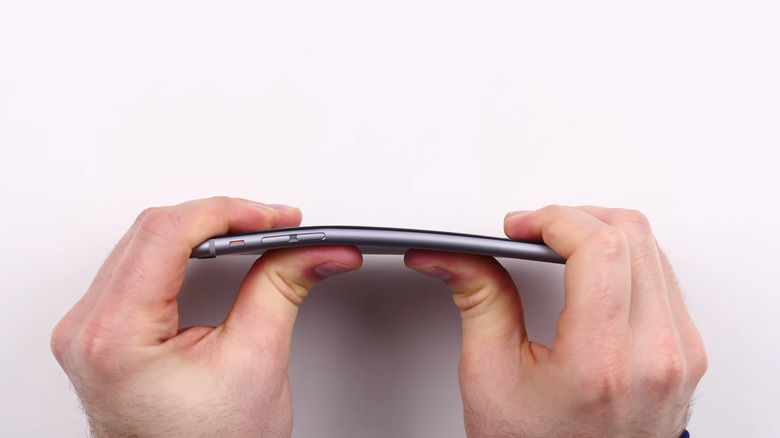Massive Tech Scandals That Rocked The Industry
The conviction of former FTX CEO Sam Bankman-Fried on multiple fraud charges has brought renewed interest in how multi-billion dollar tech scandals come to light. This has been especially true in the case of FTX, as many high-profile figures were involved with the company before its downfall. Bankman-Fried's blatant lies to customers and investors about his firm's financial situation immediately preceding its collapse might seem staggering, but it's far from the first time a tech company has been caught grossly misleading its customers.
In fact, some of the biggest names in the tech world have previously been embroiled in scandals involving deceit, fraud, and ugly legal battles, although some have gotten off a lot more lightly than others. From a music publisher that installed secret monitoring software on its customers' computers to an EV startup's lies that saw its founder convicted of fraud, these 10 scandals all rocked the tech industry when they unfolded.
Samsung Galaxy Note 7 battery fires
At the buzzy launch event for the Galaxy Note 7, it seemed like Samsung had played its cards right. The Note 7 was widely praised by SlashGear and others while making strong first-week sales. It's safe to say that no one at the event could predict the complete failure that would unfold for the company over the coming weeks. It would turn out that a design fault in the Galaxy Note 7's battery could cause the electrodes inside to bend, in turn causing a short circuit which could lead to the device catching fire.
It wasn't just one incident of fire, either. Mere days after the phone's triumphant launch, stories of devices spontaneously combusting hit the headlines. A few weeks later, the number of cases was rising so rapidly that Samsung announced a recall of all 2.5 million units sold so far. Customers were given two options –- get a refund or receive a replacement device.
However, the scandal didn't end there. It wasn't long before reports surfaced of replacement phones catching fire, including one that started smoking while it was on a Southwest flight that was waiting to depart. The phone burned through part of the plane's carpeting, causing the flight to be canceled. After these additional reports emerged, Samsung was forced to withdraw the Galaxy Note 7 altogether and issue full refunds to all customers at a massive cost to both its revenues and reputation.
Facebook's emotion-controlling experiment
In 2014, it was revealed that Facebook had conducted a mood experiment on its users two years earlier to see how its algorithm could manipulate their feelings. For one week, a small percentage of users were shown either content with mainly positive words or with mainly negative words. The idea was to establish if it would cause emotional contagion -– that is if negative content would cause a user to be in a negative mood and vice versa.
The answer was that emotional contagion was indeed possible, and the results of the study were published in a scientific journal. However, when the article was published, it drew significant backlash. Some criticism centered around the fact that Facebook's data policy had only been updated to include data usage for research purposes four months after the study was conducted, while some argued that the publishing of the study was the key issue. After all, most peer-reviewed scientific studies require human participants to explicitly give their consent to take part, and this wasn't sought from the Facebook study participants.
The study prompted renewed concern over how data collected by big tech firms was being used, although ultimately, the fallout was only temporary. Social media platforms continue to conduct analysis on their user base to keep their algorithms engaging, although data policies are now more likely to explicitly allow for experiments like Facebook's.
America's ban on Huawei
One of the biggest ongoing scandals is that of Chinese tech giant Huawei's alleged use of illegal security backdoors, which has led to the company's smartphones and network infrastructure being banned from sale in the United States. This ban was first enforced nationwide in 2020, and things have only gotten worse for the struggling company since then.
The issue centers around the different requirements that Huawei's devices are required to have in order to comply with local regulations. In China, the government reserves the right to access data from individual users at any time, including data from smartphones. No such right exists in America, and the presence of such backdoors has caused alarm about the potential for the Chinese government to harvest data from American citizens.
This has led to the FCC imposing severe restrictions that effectively cut Huawei off from American technology partners and consumers. The problem is compounded by the company's close relations with Chinese officials, in particular those of its founder, who allegedly received lucrative contracts thanks to his connections. Both American officials and those in other countries such as Sweden have expressed concerns that cyber attacks could be conducted through Huawei phones and infrastructure. For now, however, the fallout from the initial bans is still ongoing, and verifiable evidence of any attacks is yet to be made public.
Samsung and Apple's patent battle
In a protracted court battle lasting seven years, Samsung and Apple repeatedly sued and countersued each other over alleged infringements of various patents, primarily surrounding their respective smartphone and tablet lines. The lawsuits were filed not only in U.S. courts but also around the world, including the U.K., Japan, Germany, and various other territories. In almost every case, when one party prevailed, the other would launch an appeal, although it was Apple that eventually came out on top.
By 2012, Samsung had already been found guilty of infringing on a number of Apple patents, and although an appeal was lodged, the company was eventually forced to acknowledge its guilt. However, the argument over the damages that Samsung should pay raged on for years after the initial Apple victory, and it took until 2018 for a final figure to be decided. Originally, Apple had been awarded more than $1 billion by a jury, but after a lengthy appeal process, that figure was eventually reduced to $539 million.
Sony's CD rootkit
Sony's rootkit scandal in the mid-'00s became a lesson in how not to respond to a crisis. When it was first reported by security researcher Mark Russinovich that Sony had been secretly installing rootkits on PCs, bosses initially were dismissive of the claims. As reported by The New York Times, one executive infamously went on national radio and said, "most people, I think, don't even know what a rootkit is, so why should they care about it?"
The rootkits were planted on the publishing company's CDs and installed as a way to enforce the company's digital rights management (DRM) policy. Due to the nature of Windows' disk drive installation, the rootkit could install itself without triggering any pop-up for the user, leaving it completely hidden.
The rootkit would monitor and prevent unauthorized programs from reading the disk and also send data on what users were listening to back to Sony. Not only that, but it was extremely difficult to remove even after it had been found and created potential security flaws both while it was installed and afterward. After significant backlash concerning both the initial findings and how bosses responded to the reports, Sony eventually offered to recall its CDs and replace them. However, the damage had already been done, both to Sony's reputation and to the computers of millions of unsuspecting users.
The Theranos scam
The supposedly groundbreaking blood-testing company founded by Elizabeth Holmes, Theranos, turned out to be built on completely false claims, landing Holmes in jail after a high-profile trial found her guilty of multiple counts of fraud. Theranos claimed to have found a way to perform a range of blood tests using a smaller, much more affordable machine than anyone had previously built, but early on, concerns arose about its accuracy. Nonetheless, investors continued to pour money into the startup, leading to a peak valuation of around $10 billion and making Holmes one of Silicon Valley's biggest rising stars.
In 2015 several reports emerged from a whistleblower that, far from being a revolutionary technology, Theranos' machine was essentially useless and was unable to conduct most of the tests that its founder had claimed. Furthermore, most blood testing that was conducted by the company relied on the same rivals' machines that the startup had claimed to be making obsolete.
These revelations led regulators to act, and by 2016, Holmes was banned from running the company. Eventually, both Holmes and her business partner were given lengthy jail sentences because of the deception, but that was little comfort to the investors who had been scammed out of millions of dollars or the patients who had been given potentially inaccurate blood tests.
Apple's Fortnite ban
The long-running clash between Epic and Apple began in 2020 and remains ongoing. The disagreement started when Epic announced it was launching a direct payment method in "Fortnite" on iOS, giving players a 20% discount on microtransactions by eliminating the 30% cut that Apple usually takes on App Store transactions. Epic did this, according to its CEO, to protest against Apple's supposed monopoly and high transaction fees, although we've previously written about how the games giant's motives are a little less altruistic than they might first appear.
After a lengthy court battle and multiple appeals, Epic eventually lost the case on nine out of 10 counts, with a judge ruling that Apple did not violate antitrust laws in its running of the App Store. However, in September 2023, both parties announced they intended to appeal to the Supreme Court to challenge the results. Apple wanted a review of the one count it did lose concerning its ability to prevent app developers from adding links to alternative payment options, and Epic wanted a review of the entire case. For now, the saga rumbles on, with gamers still losing out because of it.
Nikola Motors' fraudulent demonstrations
The last decade saw a wave of new EV startups founded, and Nikola Motors was at one point one of the most valuable of all of them. Helmed by Trevor Milton, Nikola claimed to be developing several vehicles, including an electric semi-truck. This was still groundbreaking territory at the time –- the high emissions of semi trucks meant that there was a lot of interest around creating a cleaner version, but battery tech had so far made it impossible to develop a truck with a commercially viable range.
Nikola's supposed advances in bringing such a truck to market saw it attract a lot of high-level interest, including a tentative partnership with GM, but a shocking report published by short-seller Hindenburg Research claimed Nikola's vehicle development to be little more than a lie perpetuated by founder Trevor Milton. Included in the report was a claim that a video of Nikola's semi-truck supposedly driving under its own power actually showed the truck rolling down an incline. Further research by journalists proved this to be true.
Milton stepped down as CEO shortly after the report was published, but his troubles were only just beginning. While investors and partners were rapidly distancing themselves from the disgraced startup, federal prosecutors were examining the claims in detail and found plenty of damning evidence against the company's founder. A 2022 trial saw Milton convicted of fraud, and his sentencing is scheduled for the end of November 2023.
Cambridge Analytica and Facebook
In a scandal that laid bare the scale and influence of social media data harvesting, British political consulting firm Cambridge Analytica was accused of using the personal data of millions of Facebook users to influence a series of major political events, including the 2016 U.S. elections and the Brexit referendum. The consulting firm contracted a researcher who harvested personal data from users without their consent, with Facebook's prior permission to do so. That data was then allegedly used to target voters both in the U.S. and abroad.
The firm was employed by Donald Trump's team during his successful 2016 presidential run. For its part, the company claimed that any sensitive data had not been used for campaigning purposes, but its defense was met with heavy skepticism.
Cambridge Analytica eventually closed in 2018, and a year later, the FTC issued a ruling that it must delete the illegally gathered data. Our own Chris Burns called the ruling "woefully inadequate" at the time, especially since the $5 billion fine imposed on Facebook for its role in the scandal was so insignificant to the company that it actually caused the company's stock to rise after the announcement. Facebook also settled a class-action lawsuit launched by affected users in late 2022, paying out a further $725 million.
The iPhone 6 and Bendgate
The Bendgate scandal began after a YouTuber released a video showing how easily the freshly-released iPhone 6 Plus could be bent in September 2014, leading scores of other buyers to come forward with similar issues of their own. There was plenty of controversy surrounding the original video – some outlets even decried it as fake – but as more reports began to surface, it became increasingly clear that there was some inherent design flaw with the phone. In particular, it seemed that the fault lay in a particular weak spot near the volume buttons where the aluminum casing could be more easily bent.
Although Apple never admitted fault at the time, documents released years later confirmed that the company was well aware that its new design suffered from the flaw, and its own internal testing had proved the 6 Plus was multiple times weaker than its predecessor. In fact, Apple's own data showed the 6 Plus was 7.2 times more likely to bend than the iPhone 5, according to documents published by Vice, while the iPhone 6 was 3.3 times more likely. Apple has never changed its official stance that there was no inherent flaw with the design, even if the litany of customers with warped iPhones would likely disagree.

